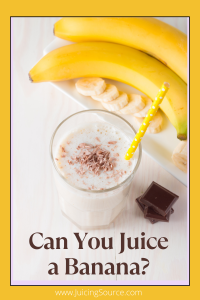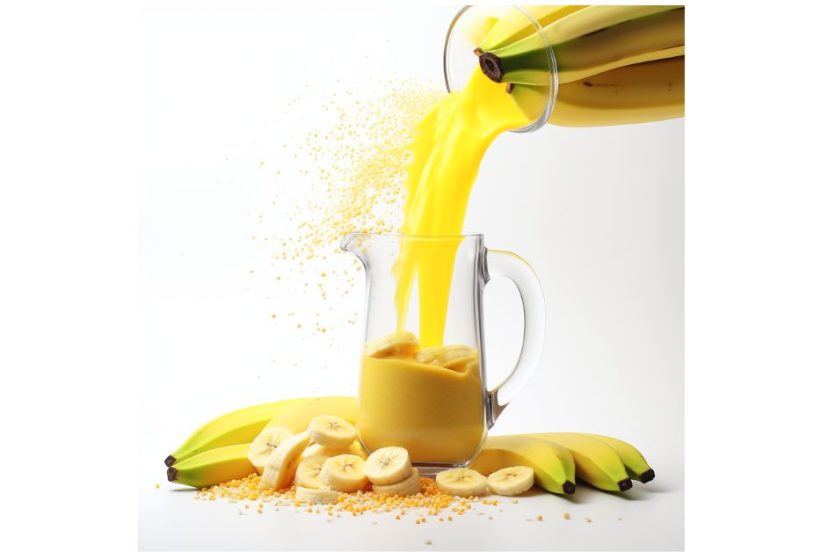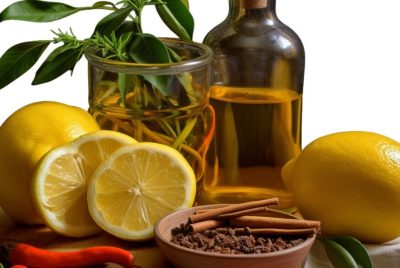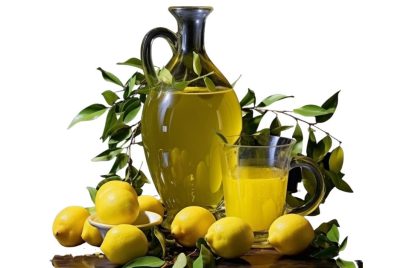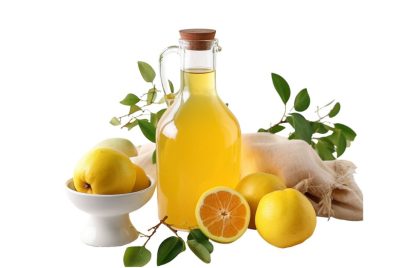Can You Juice a Banana? – Banana Squeeze: Extracting the Truth Behind Juicing Bananas
As a health enthusiast, I am passionate about exploring the various benefits of juicing. Juicing has gained immense popularity due to its ability to provide a concentrated dose of vitamins, minerals, and antioxidants in an easily digestible form.
One question that often arises is whether it’s possible to juice a banana. In this post, I will delve into the topic, discussing the health benefits of juicing, the nutritional value of bananas, and provide helpful suggestions and reasons for incorporating banana juice into your diet.
What is Juicing?
Juicing involves extracting the liquid from fruits and vegetables, leaving behind the pulp and fiber. This liquid, often referred to as juice, is rich in nutrients and can be consumed in its raw form or blended with other ingredients to create delicious and nutritious concoctions. Juicing allows for easy absorption of nutrients, giving your body a quick boost of vitamins and minerals.
Health Benefits of Juicing:
Boosts nutrient intake: Juicing provides an efficient way to increase your daily intake of essential vitamins and minerals. By extracting the juice, you concentrate the nutrients, making them more readily available to your body.
Enhances digestion: The juicing process breaks down the cell walls of fruits and vegetables, making it easier for your body to digest and absorb the nutrients. This can be particularly beneficial for individuals with digestive issues.
Promotes hydration: Juices are a great way to stay hydrated as they contain a high water content, along with valuable electrolytes. Proper hydration is vital for overall health and well-being.
Supports detoxification: Juicing can aid the body’s natural detoxification processes by providing a concentrated source of antioxidants and phytonutrients. These compounds help neutralize harmful free radicals and eliminate toxins from the body.
Nutritional Value of Bananas:
Before delving into whether you can juice a banana, let’s explore the nutritional value of this popular fruit. Bananas are rich in several essential nutrients, including potassium, vitamin C, vitamin B6, and dietary fiber. These nutrients offer various health benefits, such as supporting heart health, maintaining blood pressure, and promoting healthy digestion.
Can You Juice a Banana?
The answer is yes, you can juice a banana. However, due to their high water content and relatively low juice yield, bananas are not commonly juiced alone. They are often blended with other fruits or used as a base for smoothies. The natural sugars and creamy texture of bananas make them an excellent addition to juicing recipes, adding sweetness and thickness to the final product.
The Process of Juicing a Banana:
To juice a banana, follow these simple steps:
Peel the banana and cut it into smaller pieces for easier blending.
Place the banana pieces in a blender or juicer.
Add a liquid base such as water, coconut water, or almond milk to facilitate blending.
Blend until smooth and creamy.
Optionally, you can add other fruits, vegetables, or superfood powders to enhance the flavor and nutritional profile of your banana juice.
Tips for Juicing Bananas:
Use ripe bananas for juicing as they are sweeter and easier to blend. Combine bananas with citrus fruits like oranges or lemons to add a tangy twist to your juice.
Experiment with different combinations of fruits and vegetables to create unique and flavorful juices. Adjust the thickness of your juice by adding more or less liquid to suit your preference. Consider adding a handful of greens like spinach or kale to boost the nutrient content of your banana juice.
Recipes for Banana Juice:
Banana Berry Blast:
1 ripe banana
1 cup mixed berries (strawberries, blueberries, raspberries)
1 cup coconut water
Optional: a handful of spinach for added greens
Blend all the ingredients until smooth and enjoy a refreshing and nutrient-packed banana berry blast.
Tropical Banana Delight:
1 ripe banana
1/2 cup pineapple chunks
1/2 cup mango chunks
1 cup almond milk or coconut water
Optional: a teaspoon of chia seeds for added omega-3 fatty acids
Blend all the ingredients until creamy and indulge in a tropical delight that will transport you to paradise.
Alternative Ways to Use Bananas:
Bananas are incredibly versatile and can be used in various forms beyond juicing. Here are a few alternative ways to incorporate bananas into your diet:
Smoothies: Blend bananas with other fruits, yogurt, and a liquid of your choice to create delicious and nutritious smoothies.
Frozen Treats: Freeze ripe bananas and blend them to make creamy and guilt-free “nice cream.”
Baking: Mash bananas and use them as a natural sweetener and moisture-rich ingredient in baked goods like banana bread or muffins.
Oatmeal Toppings: Slice bananas and add them as a topping to your morning oatmeal for added flavor and nutrition.
Snack Slices: Enjoy bananas as a healthy snack by slicing them and pairing them with nut butter or yogurt.
The Final Verdict
So, can you juice a banana? Technically, no. But by blending, we can enjoy all the benefits in a delicious, liquid form. Enjoy your banana smoothie!
Conclusion:
In conclusion, juicing bananas is not necessarily the way to go, although they are often used in combination with other fruits and vegetables due to their high water content. Incorporating banana juice into your diet can provide an array of health benefits, including increased nutrient intake, improved digestion, and support for detoxification processes. Remember to explore different recipes, experiment with flavors, and enjoy the versatility of bananas in other forms beyond juicing.
FAQs:
Q1: Is juicing bananas better than eating them whole?
A: Juicing bananas can offer a different experience and make the nutrients more readily available to your body. However, it’s important to note that whole bananas also provide dietary fiber, which is beneficial for digestive health. It’s recommended to incorporate both juiced and whole bananas into your diet for maximum benefits.
Q2: Can I juice unripe bananas?
A: It’s best to use ripe bananas for juicing as they are sweeter and easier to blend. Unripe bananas may have a starchy taste and could result in a less pleasant juice flavor.
Q3: Can I store banana juice?
A: It’s ideal to consume freshly prepared banana juice for maximum nutritional value. However, if you need to store it, keep it refrigerated in an airtight container and consume it within 24 hours.
Q4: Are there any health risks associated with juicing bananas?
A: Juicing bananas is generally safe and beneficial for most individuals. However, if you have specific health conditions or dietary restrictions, it’s advisable to consult with a healthcare professional or nutritionist before making significant changes to your diet.
Q5: Can I add banana juice to other juices or smoothies?
A: Absolutely! Banana juice can be a great addition to other juices or smoothies, enhancing the flavor and adding a creamy texture. Feel free to experiment and create your own unique combinations based on your taste preferences.
Other resources related to the content of this post:
-
A study about the nutritional properties of bananas: “Banana (Musa sp var. elakki bale) flower and pseudostem: Dietary fiber and associated antioxidant capacity”
-
A commentary on the importance of blending versus juicing from the Mayo Clinic: “Juicing: What are the health benefits?”
These references support the content of the article and offer further reading for those interested in the science behind the statements.
